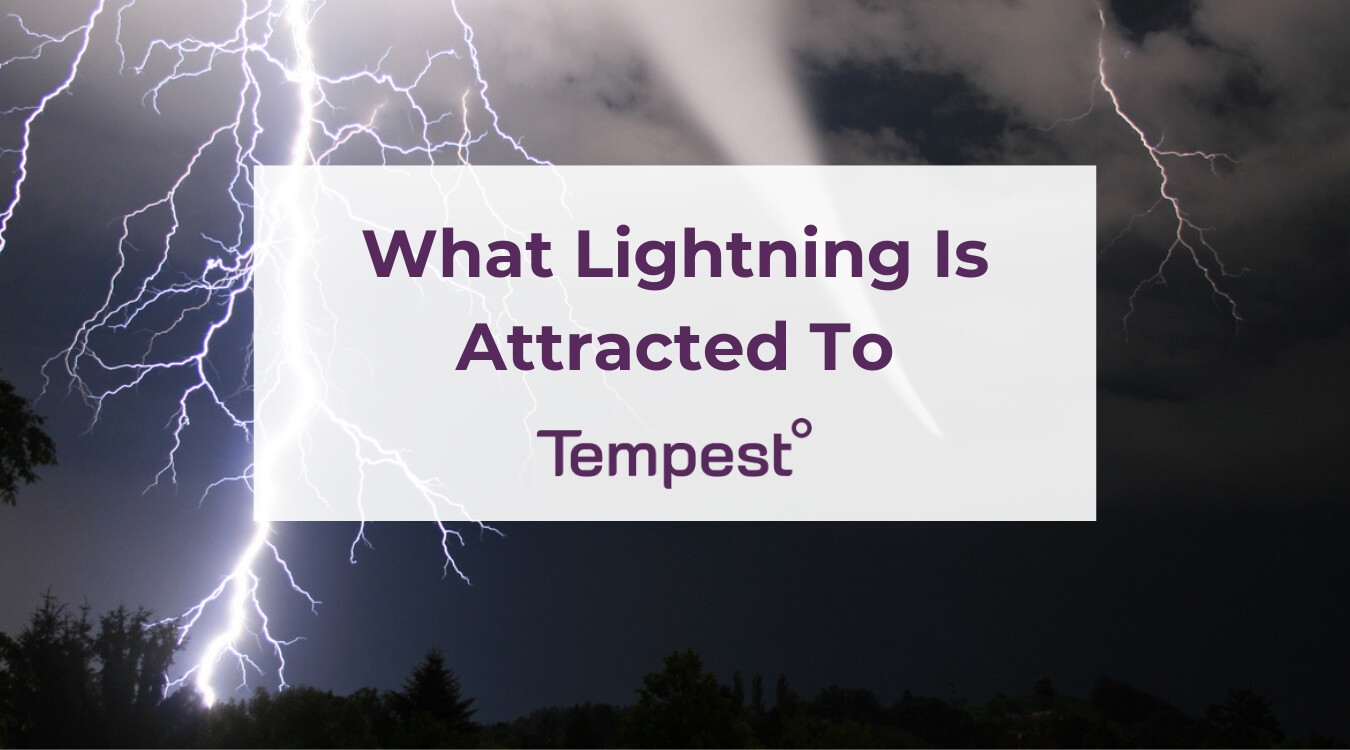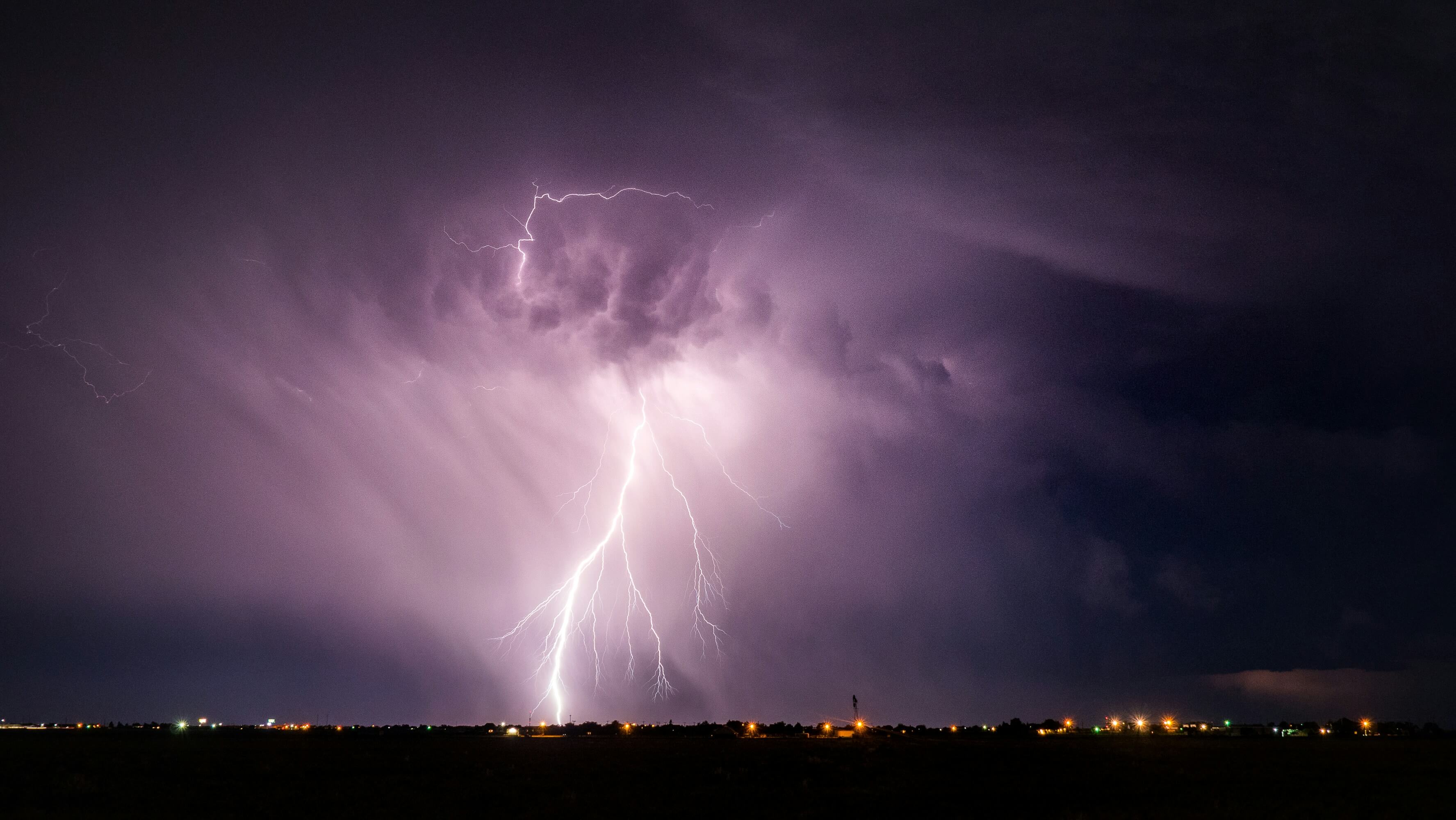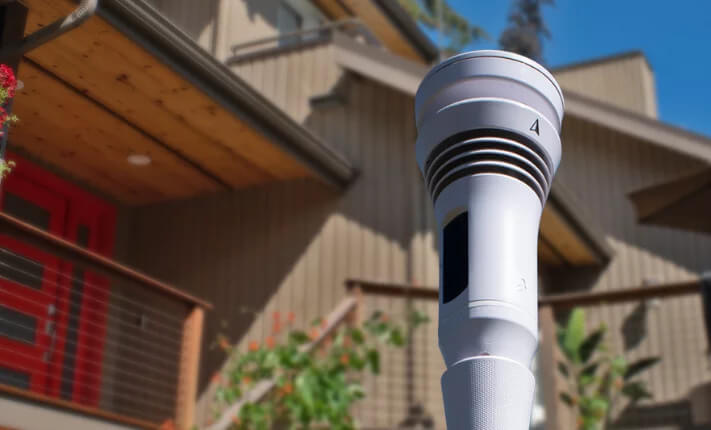
There’s more to worry about in a thunderstorm than getting drenched in the rain. Staying informed on what attracts lightning can help you stay safe whether you’re at home, in a car, or out in the open.
Observing thunderstorms is something humans have done since the dawn of time. While the crash of the thunder and lightning flashes are amazing weather phenomena to marvel at, you need to know what elements attract lightning to ensure you stay safe during a storm.
- What Is Lightning Attracted To The Most?
- What Attracts Lightning To A Person?
- What Attracts Lightning To A House?
- How To Stay Safe From Lightning While In A Car
Check out the Tempest Home Weather System for accurate rain data and lightning detection in your precise location.
What Is Lightning Attracted To The Most?
There are a few types of lightning, and the most dangerous to humans are the cloud-to-ground lightning and anvil varieties. Though lightning is attracted to clouds and the ground, it will look for the path of least resistance to neutralize its electrical charges, meaning it may strike people or other objects to close the circuit. In general, lightning is most likely to strike things with these characteristics:
- Height
- Pointy shape
- Isolated objects
Materials that conduct electricity, such as metal, don’t necessarily attract lightning more than other materials. However, if objects like metal fences, vehicles, or power lines are struck by lightning, it can be dangerous to touch or go near them.
What Attracts Lightning To A Person?
Lightning is not attracted to people, though there are certain things individuals can do that put themselves at a higher risk of being struck. This includes:
- Taking shelter under a tree or other tall structure
- Walking or standing in an open area
- Touching a wire or conductive material after it’s been struck
- Using indoor plumbing like sinks or faucets
- Lying on a concrete floor
- Being near a body of water
For humans, getting struck by lightning often has more to do with where they are or what’s near them rather than what they’re wearing or holding. So, if you’ve had concerns like, “Do electronics attract lightning?” or, “Is it okay to use your cell phone during a thunderstorm?” they are only safe to use if they’re not plugged into an outlet. Otherwise, steer clear until the storm subsides.
What Attracts Lightning To A House?
Your best bet for staying safe during a thunderstorm is to seek shelter indoors. However, your home may still be struck by lightning, especially if it has the following characteristics:
- A steep or metal roof
- Located in elevated terrain, like the top of a mountain
- Near tall objects, like a telephone pole or trees
- Isolated in an open field
To minimize potential damage from a lightning strike on your home, consider using surge protectors or installing a lightning rod on your roof.
How To Stay Safe From Lightning While In A Car
If you get caught in a thunderstorm while in your car, there are a few things you should do to stay safe. It’s recommended to keep your windows closed and avoid contact with metal parts inside the vehicle, such as your phone, electronics, gear shifter, or steering wheel. Avoid parking or driving your car on elevated ground, which can make it more likely to be struck by lightning.
In the event that your car is struck while you’re inside it, remain in the vehicle until the storm has subsided, and continue to avoid touching any metal surfaces. The National Weather Service recommends that you stay in the shelter for at least 30 minutes after you last heard thunder.
Detect Lightning Accurately In Your Area With The Tempest Weather System
There are some misconceptions about what attracts lightning, though remember that objects that are tall, pointy, or isolated are the most likely to be struck. Having this knowledge and using the right weather instruments to track storms and lightning strikes can help to keep you safe.
The Tempest Home Weather System is equipped with a lightning detection sensor, which can detect strikes up to 40 kilometers away. As soon as lightning is detected near your area, you will be notified via the Tempest Weather app, giving you a heads-up to seek shelter.
Shop the Tempest Weather System for accurate local weather forecasts and lightning alerts to keep you and your family safe.

